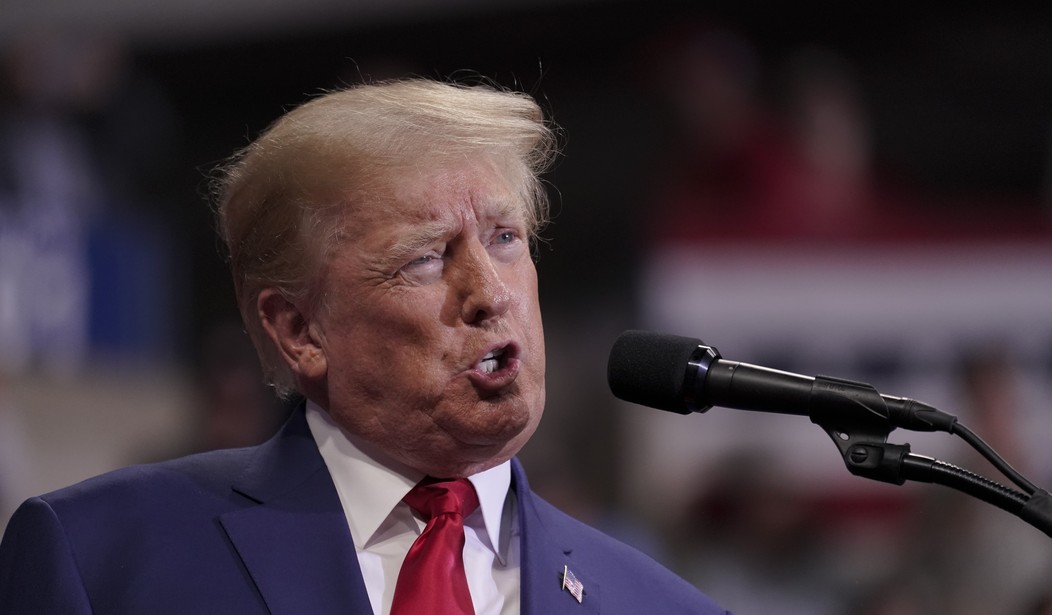Anyone wondering why the Libertarian Party didn’t get the second look from the public that it hoped for after the COVID era should take a look at how they campaigned in Georgia.
Living up to the reputation of the Libertarian Party, gubernatorial nominee Shane Hazel used an entire debate to berate, not Stacey Abrams, but incumbent GOP governor Brian Kemp for his brief support of lockdowns — despite Georgia’s status as one of the freest states throughout COVID. Libertarians’ Secretary of State nominee Ted Metz pushed election denial narratives and a pure paper-ballot system. David Raudabaugh, the party’s candidate for agricultural commissioner, campaigned not on deregulating the over-subsidized agriculture sector, but on legalizing weed and taxing it to fund big-government programs. Chase Oliver, the Libertarian Party nominee for U.S. Senate, is making media rounds bragging about causing a costly runoff between GOP nominee Herschel Walker and incumbent Democrat Raphael Warnock. Oliver has already formed an exploratory committee for a presidential run, despite no evidence that his campaign changed the views of the electorate or the major party candidates in the runoff.
In short, Libertarian Party nominees did little in Georgia beyond electoral trolling. None of this makes persuadable voters want to pull the lever for Libertarian Party candidates over the major parties.
If libertarians are looking for a way to launch their political movement into the mainstream, they should wake up and realize a model already exists in the 2016 presidential campaign of Donald J. Trump.
Recommended
His questionable character and various departures from prior Republican policies notwithstanding, Trump understood that it was easier to advance his vision for America by changing minds within an established political party, rather than by breaking out on his own. This year’s midterm elections show that candidates who reflect Donald Trump’s excesses can no longer win, creating an opening for disciplined libertarian candidates to make an aggressive play for the direction of the Republican Party.
The GOP has long agreed with libertarians on several issues — economics, education, the Second Amendment, and more. And on issues like the Drug War, many in the conservative movement desire a more libertarian policy for the GOP. Despite complaints from some like Tucker Carlson that libertarian ideologues already dominate Republican politics, this has not been meaningfully reflected in policy stances taken by most of the party’s candidates. Even so, the groundwork has been laid for libertarian ideas to take hold in the Republican Party, and it would help the GOP widen its base.
Expanding the GOP’s raucous coalition may sound like more trouble than it’s worth. But in recent election cycles, it’s often helped them win. In New Hampshire, the Free State Project has promoted candidates with more libertarian views, mostly affiliated with the GOP. Republicans won control of both the state’s Senate and House in 2020, even as the not-so-libertarian Donald Trump lost the presidential election in New Hampshire and nationwide. Meanwhile, its Republican governor Chris Sununu was reelected to a two-year term with 65% of the vote in 2020, cruising to victory again in 2022.
Many in the GOP have embraced a post-liberal view promoted by various nationalists and traditionalists, eschewing economic liberty for explicit government intervention in support of their values. Libertarians have their work cut out for them in reclaiming the Republican Party’s economic stance, demonstrating that economic freedom to choose the best for yourself and your family will lead to more prosperity than simply subsidizing a preferred set of values.
Despite obvious differences, libertarians and nationalist conservatives share a skepticism of the alliance between big government, big business, and especially big tech. An aversion to military adventurism has already had an impact on how the GOP views foreign policy. Both national conservatives and libertarians made hay of how government agencies like the CIA and the FBI inappropriately intruded on the lives of citizens in recent years, up to and including Donald Trump during his time as president. “America First” conservatives have already done a lot of the groundwork in the Republican Party, tapping into a groundswell of skepticism for legacy institutions without having a clear governing philosophy. This “Trumpy” crowd has also proven that a party can be radically changed internally. This is where libertarians can step in and more clearly articulate their vision.
Nationwide election results from this year show that some libertarian ideas served the GOP well. Fiscally conservative governors like Kemp and Ron DeSantis scored solid victories, Joe Lombardo turned Nevada red, and New York’s Lee Zeldin and Oregon’s Christine Drazan came closer to winning than many thought possible in their solid-blue states. These candidates all held libertarian economic philosophies — including some not traditionally associated with conservatives, like Brian Kemp’s and Joe Lombardo’s support for loosening some cannabis restrictions. Yet even as Kemp led Georgia’s Republican ticket on a record that included supporting school choice, a Republican won the race for state school superintendent while tacitly opposing educational freedom. A libertarian movement more focused on meaningful political change than trolling may have prevented such a candidate from ever being nominated by the GOP.
Libertarian ideas already have some effective messengers — they just aren’t in the Libertarian Party. Libertarians should work to nominate more of them on a party line that can get elected.

























Join the conversation as a VIP Member